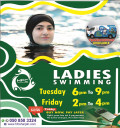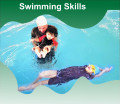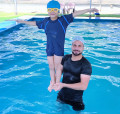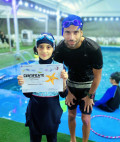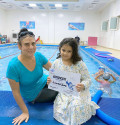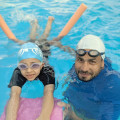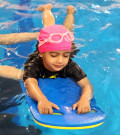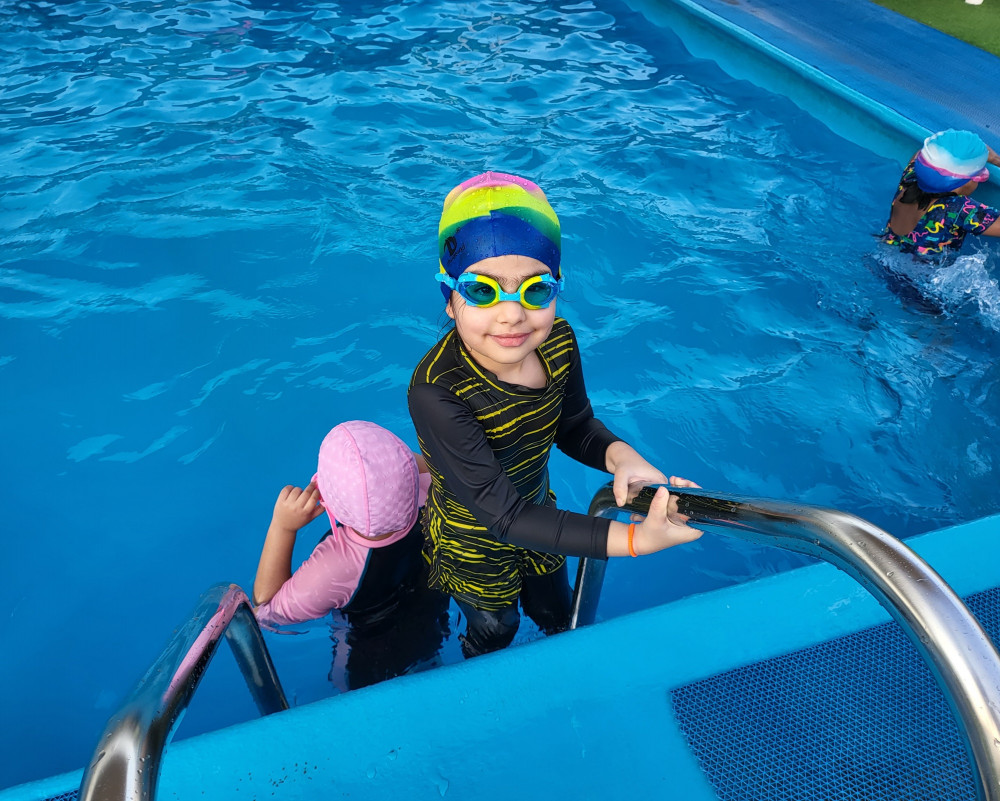
Swimming Skills with Different Techniques
2024-01-26 - swimmingI. Introduction
Swimming is more than just a sport; it's a vital life skill
that promotes overall health and well-being. The ability to swim confidently
opens doors to various water-related activities and ensures safety in aquatic
environments. In this article, we'll navigate through different swimming
techniques, providing insights into mastering each style and overcoming common
challenges.
II. Understanding Basic Swimming Techniques
Before delving into specific strokes, it's crucial to grasp
the basics of swimming. Body positioning, buoyancy, and breathing techniques
lay the foundation for all swimming styles. Beginners should focus on these
fundamental aspects to build a strong swimming base.
III. Freestyle Technique
The freestyle stroke, also known as front crawl, is the
go-to technique for many swimmers. Mastering the freestyle involves efficient
arm movements, rhythmic breathing, and maintaining a streamlined body position.
Practicing proper freestyle techniques enhances speed and endurance in the
water.
IV. Backstroke Mastery
Swimming on your back might seem relaxing, but mastering the
backstroke requires precision. Proper arm and leg movements, along with
maintaining a horizontal body position, are key components. Additionally, being
aware of your surroundings is crucial when swimming backward.
V. Breaststroke Elegance
The breaststroke is characterized by symmetrical arm and leg
movements, creating a smooth and elegant glide through the water. Perfecting
the breaststroke involves timing your breaths, coordinating arm strokes, and
executing a powerful kick. Swimmers can enhance their breaststroke efficiency
with focused practice.
VI. Butterfly Stroke Challenge
Considered one of the most challenging strokes, the butterfly
demands strength and coordination. The dolphin kick and simultaneous arm
movements require practice to achieve fluidity. Building endurance is essential
for conquering the butterfly stroke.
VII. Tackling Open Water Swimming
For those venturing beyond the pool, mastering open water
swimming is a valuable skill. Overcoming challenges like currents, waves, and
unpredictable conditions is crucial. Open water swimmers should practice
navigation and learn to adapt to different environments.
VIII. Overcoming Swimming Challenges
Beginners often face challenges like fear of water and lack
of confidence. Addressing these issues requires patience, gradual exposure to
water, and supportive guidance. Overcoming mental barriers is as important as
mastering physical techniques.
IX. Advanced Techniques for Competitive Swimmers
Competitive swimmers aiming for podium finishes need to go
beyond the basics. Fine-tuning techniques, perfecting starts and turns, and
implementing race strategies are essential for success in competitive swimming.
X. The Importance of Continuous Practice
Like any skill, swimming proficiency improves with
consistent practice. Developing a structured swimming routine ensures that
muscle memory is built, leading to more fluid and efficient movements in the
water.
XI. Cross-Training for Swimmers
To enhance overall fitness and complement swimming skills,
cross-training is beneficial. Activities like strength training, yoga, and
cardio exercises contribute to better stamina, flexibility, and muscle strength,
aiding swimmers in their aquatic endeavors.
XII. Safety Measures in Swimming
Safety should always be a top priority in swimming.
Understanding water safety rules, using appropriate flotation devices, and
being aware of potential risks contribute to a secure swimming experience.
XIII. Swimming Equipment Guide
Choosing the right swimming equipment enhances performance.
From selecting the right swimsuit to using swim caps and goggles, having the
proper gear ensures comfort and efficiency in the water.
XIV. Benefits Beyond Fitness
Beyond physical fitness, swimming offers mental health benefits
and relaxation. The rhythmic movements, combined with the soothing nature of
water, contribute to stress relief and overall well-being.
XV. Conclusion
In conclusion, mastering swimming skills with different
techniques is not just about becoming a proficient swimmer; it's about
embracing a healthier lifestyle. From the basics of floating to conquering
advanced strokes, each step in your swimming journey brings unique benefits.
So, dive in, enjoy the process, and let the waves of swimming carry you to a
fitter and more fulfilling life.







.jpg)





















































